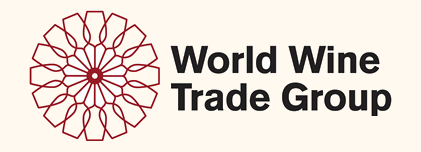On 29 and 30 June 1998 government and industry representatives interested in the international wine trade met in Zurich, Switzerland to discuss future development of the international wine business in a trading world dominated by the World Trade Organisation (WTO).
Representatives from Australia, Argentina, Brazil, Canada, Chile, New Zealand, South Africa and the United States attended the meeting.
The Zurich meeting was held against a background of rapid change and development in the international wine trade, notably:
- The dramatic increase in plantings of grape vines in New World countries, with corresponding increases in wine production volumes, most of which were aimed at export markets.
- Inclusion of agriculture issues in the then forthcoming Seattle round of the WTO.
- The review of the OIV, which aimed to make it a more relevant organisation in a trading world dominated by the WTO.
- Proposed new EU rules regarding subsidy and market regulation, and protection of so-called ‘Traditional Expressions’.
- Ongoing bi-lateral discussions relating to possible wine agreements between the EU and various new world countries, with the EU seeking to increase protection and recognition of EU geographical indications for wines.
- A meeting of southern hemisphere wine producers in March 1998 that had identified a number of areas of mutual interest.
Participating countries in Zurich indicated that they all supported unsubsidised wine production, exporters and markets. They identified a common interest in developing the international wine trade and accessing international markets. They also identified significant barriers to entry and other impediments to the development of the global wine business.
At the conclusion of the Zurich meeting, Government representatives agreed to develop and distribute a number of position papers relating to the international wine trade. These position papers were to address issues such as international regulation of oenological practices, the implication of the WTO Trips Agreement for labeling of wine exports, wine tariffs etc.
From an industry perspective a mission statement, objectives, implementation techniques and a list of projected future projects were developed. These were agreed at the second meeting in Mendoza, Argentina in March 1999.
On the basis of the mission and objectives established in Zurich and Mendoza, the WWTG moved rapidly onto putting these into practice, concluding two international trade-liberalising treaties, sharing a great deal of useful information and establishing joint positions and actions on matters of key interest (see “Achievements” below).
As the WWTG progressed, and the dynamics of international trade in wine continued to evolve, the industry section decided in 2005 to re-assess the global operating environment and the strengths and weaknesses of the WWTG in order develop a three-year strategic plan. The strategic plan was approved in Washington DC in July 2006. It introduced a revised vision as follows:
Vision
A successful, competitive and growing global wine industry, characterized by social responsibility, sustainability and focus on consumer interests, operating in a climate free of trade-distorting factors.Mission
The industry section of the WWTG is an association of national representatives of the global wine industry that will seek to realize this Vision through:- Encouraging intergovernmental initiatives and government activities designed to facilitate global trade in wine according to the Vision principles, in response to identified challenges and opportunities
- Stimulating networking among key global industry and government representatives to facilitate legitimate information sharing on key challenges and opportunities
- Working with other NGOs, both in the alcohol beverage sector and in particular those groups with a consumer focus to ensure that wine industry interests are taken into account in their advocacy.
This vision and mission underpin the ongoing activities of the WWTG today, ensuing that it will continue to play an important role in promoting free and responsible international trade in wine. The Strategic Plan is now in its third iteration, although the vision and mission remain the same.
An area of increased focus for the WWTG in recent years has been the extension of WWTG principles and relationships to new countries, particularly in developing markets. This has culminated in the creation of the APEC Wine Regulators Forum.
THE FUTURE
Both Industry and Government Sections of the WWTG continue to be highly active in the pursuit of trade facilitation in the wine sector. An important proposal concerning regulatory limits and their verification by analysis is under consideration. Efforts to build understanding of the WWTG and its principles in developing wine markets are another high priority for the group.CONCLUSION
In a short period of time the WWTG has proven to be an important force in the influencing regulation of the international wine trade. Beginning with a shared vision and a commitment to open international trade, participating countries have begun to reshape the regulatory environment in which the international wine business operates.In the future, the group and its activities will evolve and develop. The future will, however, always be founded on the mutual interests that brought participating countries together in Zurich in 1998. Those mutual interests in sharing information and promoting debate on international wine trade issues, combined with a commitment to developing that trade based on WTO-consistent rules and regulation, should ensure development of a more open and competitive wine markets to the benefit of consumers, producers, exporters and importers.




